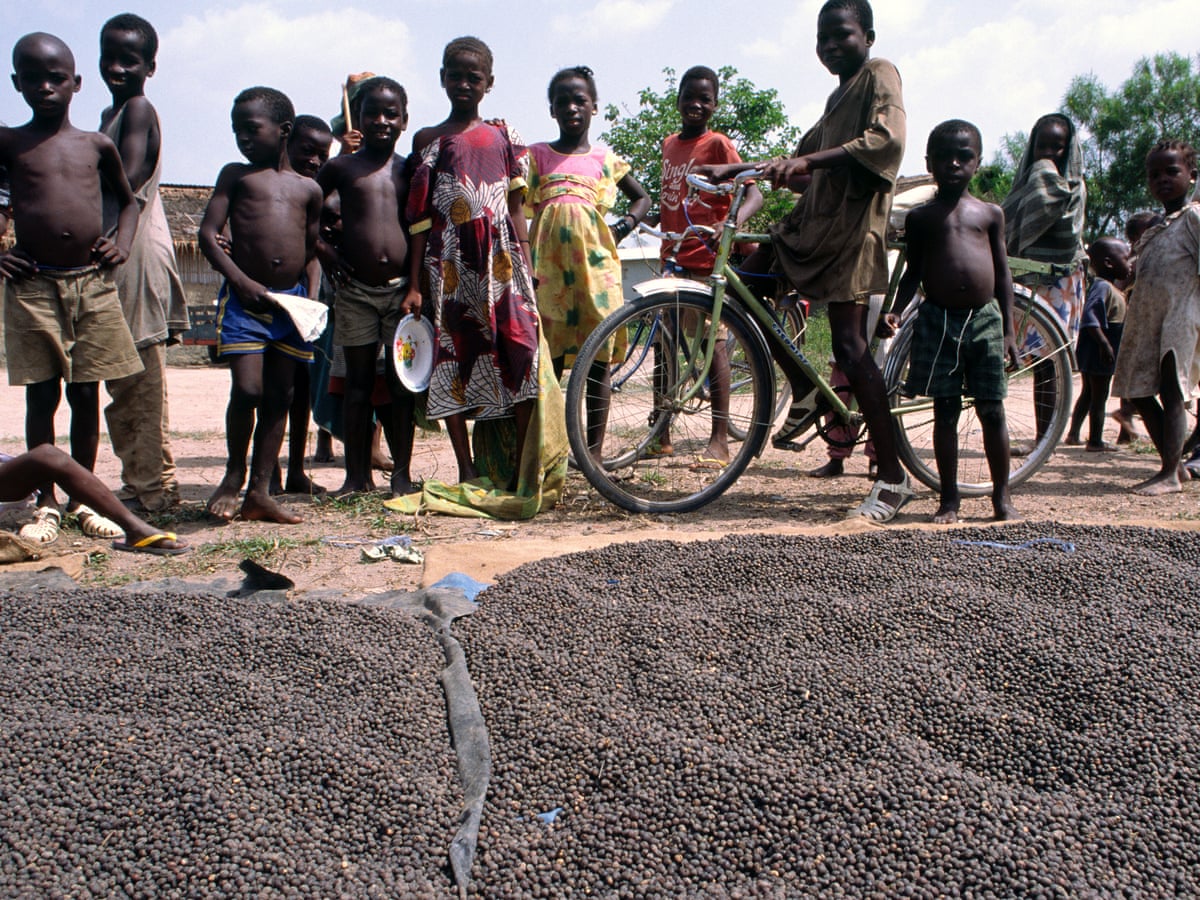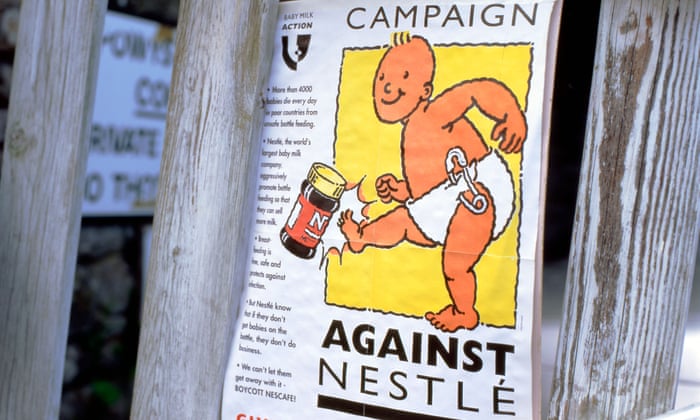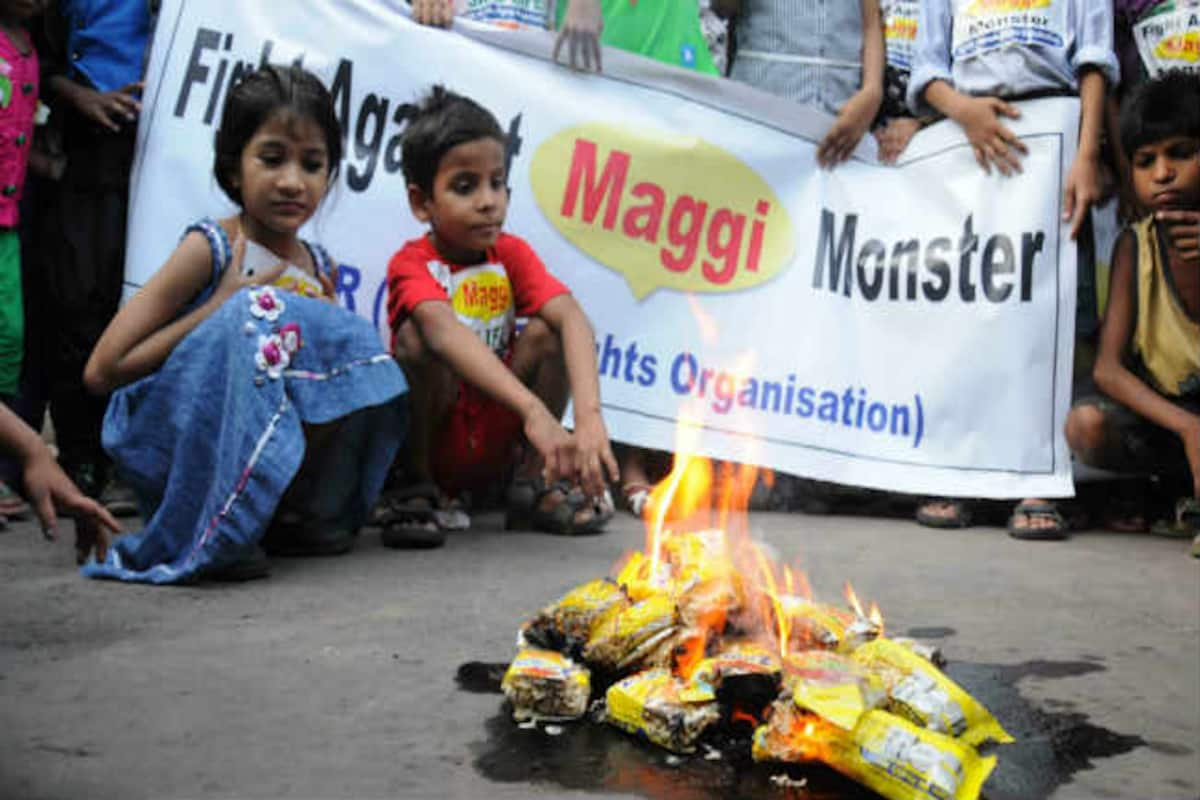Centre asks FSSAI to initiate action against Nestle after report of sugar content in Cerelac. Times In History When Nestle Has Been Involved In Scams & Controversies

Centre asks FSSAI to initiate action against Nestle after report of sugar content in Cerelac. Times In History When Nestle Has Been Involved In Scams & Controversies
On Friday, the Union Consumer Affairs Ministry took a significant step by instructing the Food Safety and Standards Authority of India (FSSAI) to take “appropriate action” against the multinational conglomerate Nestle. This directive comes in response to allegations that Nestle has been selling baby products in India that contain excessively high levels of sugar.

This action by the Department was triggered by a concerning report indicating that Nestle has been adding 2.7 grams of sugar per serving to their Cerelac baby cereals marketed in India. Intriguingly, it is alleged that Nestle does not follow this practice in several other countries, including Germany, Switzerland, France, and the United Kingdom, where presumably stricter standards might be enforced.
The ministry’s letter to the FSSAI expressed grave concerns regarding the high sugar content in these baby products, highlighting the potential risks to the health and safety of young children in India. The letter emphasized that “the health and well-being of our citizens, especially infants and young children, is of paramount importance.” It further pointed out that any deviation from established safety standards is unacceptable and could lead to serious health issues. The ministry’s intervention underscores the urgent need for regulatory scrutiny to ensure that all baby food products sold meet the highest standards of health and safety, thus safeguarding the welfare of the youngest and most vulnerable members of society.
Arun Gupta, a representative from the Breastfeeding Promotion Network of India, emphasized the urgent need for India to revisit and rigorously enforce its food safety regulations. He expressed concerns that while businesses primarily operate to generate profits, it is the government’s fundamental duty to safeguard the health and safety of its citizens. Gupta pointed out that any shortcomings or leniencies in the enforcement of these laws could potentially jeopardize the health of the population, particularly vulnerable infants who are most at risk from unsafe food products.

The urgency of addressing the high sugar content in baby food products has also been a longstanding concern of the World Health Organization (WHO). For several years, the WHO has been cautioning against the risks associated with excessive sugars in baby foods, which can have detrimental long-term health effects.
In a study that highlights the critical need for action, Dr. Francesco Branca, the director of the WHO’s Department of Nutrition and Food Safety, spoke to the Swiss investigative agency Public Eye and the International Baby Food Action Network (IBFAN). These organizations recently published a report underscoring the alarming levels of sugar found in baby food products. Dr. Branca stressed that “This study stresses the need for urgent action to reshape the food environment for children,” emphasizing the necessity of removing added sugars from food products aimed at young children as a crucial step in preventing early onset obesity.
Dr. Branca further elaborated on the broader health implications, noting that obesity rates are soaring, especially in low and middle-income countries where it has reached epidemic proportions. This increase is contributing to a higher incidence of noncommunicable diseases such as cardiovascular disease, cancer, and diabetes. He pointed out that the consumption of highly processed foods, which are often high in sugar, is one of the primary drivers of this global health crisis. The WHO’s warnings serve as a stark reminder of the critical need for comprehensive food safety policies that protect the most vulnerable members of society from these emerging health threats.
Lets Have A Detailed Look In The Past When Nestle Has Been Involved In Controversy Across The Globe
Baby Formula Scandal (1970s): Nestlé was widely criticized for its marketing practices in developing countries, particularly concerning its promotion of baby formula over breastfeeding. The company was accused of contributing to infant deaths due to malnutrition and diarrheal diseases, as impoverished mothers often mixed formula with unsafe water or diluted it to make it last longer. This led to a significant boycott in 1977, which has been revived various times over the years.
Water Extraction Controversies: Nestlé has faced criticism and legal challenges for its practices of extracting vast amounts of groundwater for its bottled water brands, especially in regions suffering from severe droughts like California. The company has been accused of exploiting natural resources for profit while compromising local water supplies.
Forced Labor and Child Labor in Cocoa Supply Chains: Nestlé, among other chocolate producers, has been implicated in sourcing cocoa from areas where child labor and forced labor are prevalent, particularly in West Africa. Despite commitments to combat these issues, reports suggest that child labor is still a significant problem.

Environmental Impact: Nestlé has been criticized for its environmental impact, including significant contributions to plastic pollution due to its bottled water products. The company has made commitments to improve recycling and reduce plastic usage, but environmentalists argue that the efforts are not sufficient.
Price Fixing: Nestlé has been involved in price-fixing scandals. For example, in 2008, the company was fined by the European Commission for participating in a cartel that fixed prices for chocolate in Germany. Similar accusations have surfaced in other countries as well.
Health Claims and Mislabeling: Nestlé has occasionally been reprimanded for misleading advertising and claims about the health benefits of its products. For instance, in the United States, the company faced legal action for falsely claiming that its BOOST Kid Essentials drink could prevent illness in children.

Maggi Noodles Banned in India: In 2015, Maggi noodles, one of Nestlé’s most popular products, faced a significant crisis in India when they were temporarily banned due to safety concerns. The controversy began in May 2015 when the Food Safety and Standards Authority of India (FSSAI) found that samples of Maggi noodles contained levels of lead exceeding the permissible limits, along with undeclared monosodium glutamate (MSG), which led to widespread public health concerns.

The FSSAI ordered Nestlé India to recall all variants of Maggi noodles from the market, stating that the product was “unsafe and hazardous for human consumption.” This decision was echoed by several Indian states that independently tested the noodles and confirmed the findings.
The ban not only led to a public outcry and a significant blow to Nestlé’s reputation but also resulted in the company removing millions of packets of Maggi noodles from stores across India, leading to a loss of over $277 million and a significant share drop in Nestlé India’s stock price.
Nestlé contested these findings, arguing that their internal and third-party tests showed the noodles were safe to consume. After several months of legal battles, the Bombay High Court lifted the ban in August 2015, conditional on a new round of tests confirming that Maggi noodles were safe to eat. Nestlé resumed production and sales of Maggi noodles after the tests showed that the noodles were safe.
The Maggi noodles crisis was a pivotal moment for food safety in India, leading to increased scrutiny of processed foods and changes in food safety regulations and enforcement in the country. Nestlé made efforts to regain consumer trust through intensive marketing and new product launches, but the episode remains a notable example of the challenges faced by food companies in managing public health concerns.
Backlash Over Unhealthy Food Portfolio: Nestlé has faced significant backlash over its portfolio of products, often criticized for their health impacts. This controversy came to the forefront particularly in 2021, following an internal document that was leaked to the public. The document, reportedly a presentation circulated among top executives, acknowledged that over 60% of Nestlé’s mainstream food and drinks portfolio could not be considered healthy under a “recognized definition of health” and that some of Nestlé’s categories and products would never be ‘healthy’ no matter how much they were renovated.
Key Points of the Backlash:
Health Metrics: The document revealed that only 37% of Nestlé’s food and beverages by revenues, excluding products like pet food and specialized medical nutrition, achieved a rating above 3.5 under Australia’s health star rating system. This system scores foods out of five stars and is used in research by international groups such as the Access to Nutrition Foundation.
Public Reaction and Scrutiny: The leak led to widespread media coverage and public scrutiny, as it appeared to contradict Nestlé’s public commitment to nutrition and health. It spurred debates on the responsibility of food giants in combating obesity and other health issues related to diet.
Nestlé’s Response: In response to the backlash, Nestlé stated that it was working on a company-wide project to update its nutrition and health strategy. The company acknowledged the need for a broader portfolio transformation, especially as global health consciousness rises, and mentioned its efforts to reduce sugars, salt, and saturated fats in its products while increasing healthier nutrients.
Strategic Changes: Following the backlash, Nestlé has been more vocal about its commitment to health, wellness, and sustainable practices. The company has accelerated its development of healthier products and has made significant investments in plant-based food alternatives and functional foods that cater to a health-conscious consumer base.
Continued Criticism: Despite these efforts, Nestlé continues to face criticism from health advocates and watchdog groups who argue that the company’s changes are too slow and insufficiently transparent. Critics also point out that Nestlé markets highly processed foods and sugary products to children and communities with high rates of obesity and other diet-related diseases.
The incident highlights the ongoing challenges faced by global food companies in balancing profitability with public health responsibilities, and it illustrates the complexities of food marketing and reformulation in response to changing consumer preferences and health evidence.
Boycott in the US for Discouraging Breastfeeding: The boycott against Nestlé in the United States and other parts of the world, primarily due to its marketing practices around infant formula, represents one of the most significant and long-standing corporate boycotts in history. It originally began in the 1970s and has been revived multiple times since then. The core issue centers on accusations that Nestlé’s marketing tactics discouraged breastfeeding, particularly in less economically developed countries, in favor of infant formula, which critics argued was both harmful and exploitative.
Key Points of the Boycott:
Origins of the Boycott: The controversy began in the late 1970s after concerns were raised about Nestlé’s aggressive marketing of baby formula over breastfeeding. The campaign against Nestlé was sparked by the publication of a pamphlet titled “The Baby Killer,” which detailed how babies in developing countries were dying because of inadequate information about and misuse of formula.
Health Concerns: Critics argued that Nestlé’s marketing strategies misled mothers into believing that infant formula was superior to breast milk, leading to poor health outcomes. In many cases, formula was used improperly, mixed with contaminated water, or diluted to extend its use, resulting in malnutrition and increased infant mortality due to diseases such as diarrhea.
International Code of Marketing: In 1981, in response to the global outcry, the World Health Organization (WHO) and the United Nations Children’s Fund (UNICEF) adopted the International Code of Marketing of Breast-milk Substitutes. The Code aims to protect and promote breastfeeding and to ensure the proper use of breast milk substitutes, when necessary, based on adequate information and through appropriate marketing and distribution.
Nestlé’s Response: Nestlé has stated that it supports the WHO’s international code but has faced ongoing accusations of non-compliance. The company insists that it markets its infant nutrition products ethically and responsibly, providing formula as a safe alternative for mothers who cannot or choose not to breastfeed.
Renewed Criticism and Boycotts: Despite Nestlé’s efforts to align with global standards, periodic reports and investigations have reignited the boycott. Activist groups and NGOs have periodically accused Nestlé of continuing inappropriate marketing practices, particularly in vulnerable populations.
Broader Impact: The boycott has led to a broader discussion about corporate responsibility and the ethics of marketing infant nutrition products. It also highlights the delicate balance between supporting parental choice and protecting public health, particularly in contexts where misinformation can lead to serious health risks.
The Nestlé boycott remains a poignant example of global consumer activism and has influenced how companies market infant nutrition products around the world. It underscores the continuing debate over corporate practices in health-sensitive areas of the market.
Exploiting Drought-Ridden Areas: Nestlé has faced significant criticism and controversy over its water bottling operations, particularly in drought-stricken regions. The company has been accused of exploiting natural water resources for commercial gain while communities in these areas suffer from a lack of adequate water supplies. This issue has been particularly pronounced in several U.S. states and other parts of the world, where the impact of Nestlé’s operations has sparked public outrage and legal challenges.
Key Points of the Controversy:
Water Extraction in Drought Areas: Nestlé has been criticized for extracting millions of gallons of water from springs and aquifers in regions experiencing severe droughts. This practice has raised ethical and environmental concerns, particularly regarding the sustainability of such operations and their impact on local ecosystems and community water needs.
California Case: One of the most notable cases involved Nestlé’s operations in California. Despite the state suffering one of its worst droughts in history, Nestlé continued to extract water from San Bernardino National Forest for its Arrowhead brand of bottled water. The company was found to be operating with an expired permit for a significant period, and while it did pay a minimal fee for the water extraction, critics argued that the environmental cost and the impact on local water supplies were not adequately compensated.
Legal and Regulatory Battles: Nestlé has faced various legal challenges and regulatory scrutiny over its water bottling practices. In California, for instance, regulatory authorities ordered Nestlé to stop extracting water from some sources after concluding that it lacked the necessary rights to such large amounts of water. Similar legal disputes have occurred in other states like Michigan and Oregon.
Public Backlash and Activism: The company’s practices have led to public protests, boycotts, and campaigns against Nestlé by environmental groups and local communities. These groups argue that privatizing water resources for profit, particularly in ecologically sensitive and drought-stricken areas, is unethical and unsustainable.
Corporate Response and Changes: In response to mounting criticism and growing water sustainability concerns, Nestlé has taken steps to address some of the issues, including efforts to increase water efficiency and sustainability in its operations. In some instances, Nestlé has sold or reduced its stakes in controversial water extraction operations, as seen in their sale of the North American brands of bottled water.
Global Implications: The controversy has highlighted broader questions about the ethics of bottled water businesses, especially regarding the extraction of local water resources in drought-prone areas for global profit. It has also sparked a debate about the governance of natural resources, corporate responsibility, and environmental stewardship.
Nestlé’s involvement in these regions continues to be a focal point of debates on corporate water usage rights, environmental impact, and sustainability practices, reflecting the complex intersection between global business operations and local resource management.
Among the World’s Top Plastic Polluters: Nestlé has been consistently ranked among the world’s top plastic polluters, particularly highlighted in reports by environmental advocacy groups like Break Free From Plastic. The company’s extensive use of single-use plastic packaging for its vast array of products has led to substantial environmental criticism and concern.
Key Points of the Controversy:
Global Audits and Findings: According to annual audits conducted by Break Free From Plastic, Nestlé has been frequently listed as one of the top three global companies responsible for plastic pollution. These audits involve thousands of volunteers globally who collect plastic waste and identify the brands responsible for the pollution.
Impact on Environment: The widespread use of plastics by major corporations like Nestlé has significant environmental repercussions. Plastics, particularly single-use plastics found in packaging, contribute to ocean pollution, harm marine life, and disrupt ecosystems. They are often not biodegradable and can persist in the environment for hundreds of years.
Public and Activist Response: Environmental activists and concerned citizens have targeted Nestlé and other major polluters through protests, campaigns, and calls for greater corporate responsibility. These actions pressure companies to reduce their reliance on single-use plastics and to invest in more sustainable packaging solutions.
Corporate Commitments to Sustainability: In response to growing environmental concerns and consumer demand for sustainability, Nestlé has pledged to make 100% of its packaging recyclable or reusable by 2025. The company has also expressed intentions to reduce its use of virgin plastics by one-third in the same timeframe and is investing in alternative materials and recycling initiatives.
Challenges and Criticisms: Despite these commitments, Nestlé faces criticism over the pace and transparency of its efforts.
Environmental groups argue that the measures are not enough and that there is an urgent need for more aggressive actions to move away from single-use plastics altogether. Critics also call for more fundamental changes in product delivery and a shift towards a circular economy.
Regulatory Impact: As environmental awareness and regulatory pressures increase globally, companies like Nestlé are likely to face stricter regulations regarding plastic use and waste management. This regulatory landscape could force more rapid and significant changes in how companies handle packaging.
Nestlé’s position as a top plastic polluter highlights the broader issue of corporate environmental responsibility, especially as the world grapples with the escalating crisis of plastic pollution. While the company has initiated some steps towards sustainability, the effectiveness and implementation of these measures continue to be scrutinized by environmental organizations and the public.




